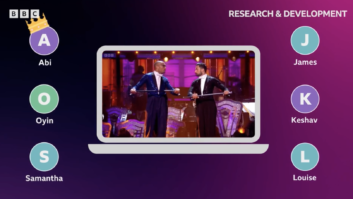The BBC’s research and development team has published a new white paper looking at the total energy used in distributing and consuming BBC TV services.
The paper studied the total energy use of the BBC’s TV services, compared that to different platforms, and investigated which parts of the broadcast chain (from transmission to the home) use the most energy and what can be done to reduce it.
Looking at energy use across terrestrial, satellite, cable and iPlayer during 2016, the research found the total was 2,171 GWh, or 0.6 per cent of total UK electricity use.
Breaking that figure down, the research showed that the amount of energy used by streaming services per hour is similar to that of cable (both 0.18 kWh/device-hour) and satellite (0.17 kWh/device-hour). Terrestrial television uses less than half of the other platforms at 0.07 kWh/device-hour.
For every platform, the R&D found that the devices in viewers’ homes used more energy in total than in the BBC’s distribution chain. Overall, the home equipment (including mobile phones) accounted for over 90 per cent of the total energy use.
The R&D team said they found that number to be surprising as “often TV transmitters are thought of as being big power hungry sticks on hills compared to TV sets and set-top boxes, but it turns out that when you add them all up together, they massively dominate.”
The full white paper can be found here.







